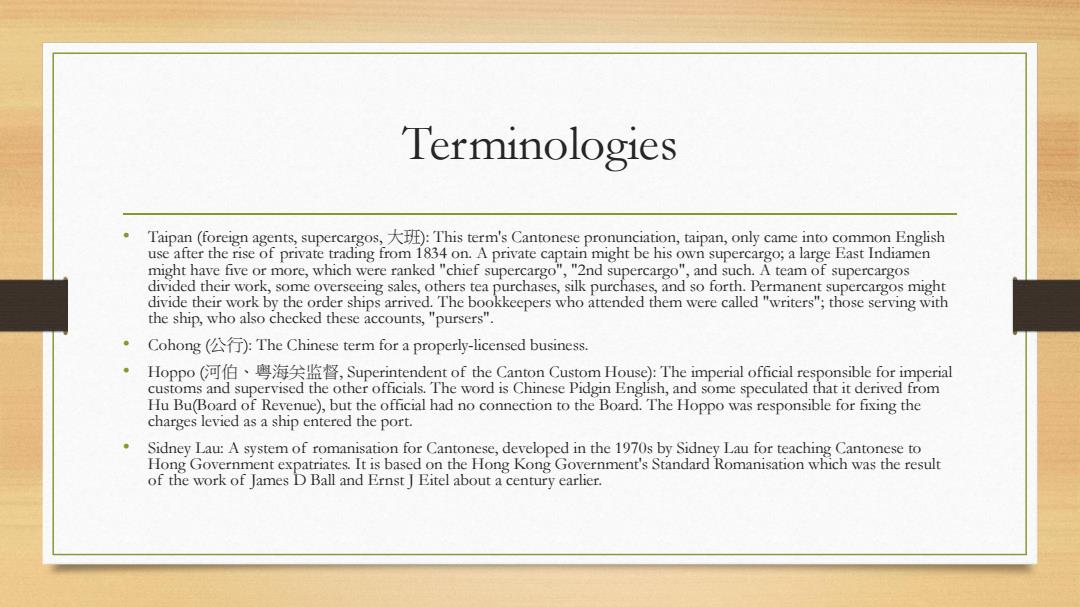正在加载图片...

Terminologies Taipan(foreign agents,supercargos,):This term's Cantonese pronunciation,taipan,only came into common English use after the rise of private trading from 1834 on.A private captain might be his own supercargo;a large East Indiamen might have five or more,which were ranked"chief supercargo","2nd supercargo",and such.A team of supercargos divided their work,some overseeing sales,others tea purchases,silk purchases,and so forth.Permanent supercargos might divide their work by the order ships arrived.The bookkeepers who attended them were called "writers";those serving with the ship,who also checked these accounts,"pursers" Cohong(公行):The Chinese term for a properly--licensed business. Hoppo(C河伯、粤海矢监督,Superintendent of the Canton Custom House):The imperial official responsible for imperial customs and supervised the other officials.The word is Chinese Pidgin English,and some speculated that it derived from Hu Bu(Board of Revenue),but the official had no connection to the Board.The Hoppo was responsible for fixing the charges levied as a ship entered the port. Sidney Lau:A system of romanisation for Cantonese,developed in the 1970s by Sidney Lau for teaching Cantonese to Hong Government expatriates.It is based on the Hong Kong Government's Standard Romanisation which was the result of the work of James D Ball and Ernst J Eitel about a century earlier.Terminologies • Taipan (foreign agents, supercargos, 大班): This term's Cantonese pronunciation, taipan, only came into common English use after the rise of private trading from 1834 on. A private captain might be his own supercargo; a large East Indiamen might have five or more, which were ranked "chief supercargo", "2nd supercargo", and such. A team of supercargos divided their work, some overseeing sales, others tea purchases, silk purchases, and so forth. Permanent supercargos might divide their work by the order ships arrived. The bookkeepers who attended them were called "writers"; those serving with the ship, who also checked these accounts, "pursers". • Cohong (公行): The Chinese term for a properly-licensed business. • Hoppo (河伯、粤海关监督, Superintendent of the Canton Custom House): The imperial official responsible for imperial customs and supervised the other officials. The word is Chinese Pidgin English, and some speculated that it derived from Hu Bu(Board of Revenue), but the official had no connection to the Board. The Hoppo was responsible for fixing the charges levied as a ship entered the port. • Sidney Lau: A system of romanisation for Cantonese, developed in the 1970s by Sidney Lau for teaching Cantonese to Hong Government expatriates. It is based on the Hong Kong Government's Standard Romanisation which was the result of the work of James D Ball and Ernst J Eitel about a century earlier